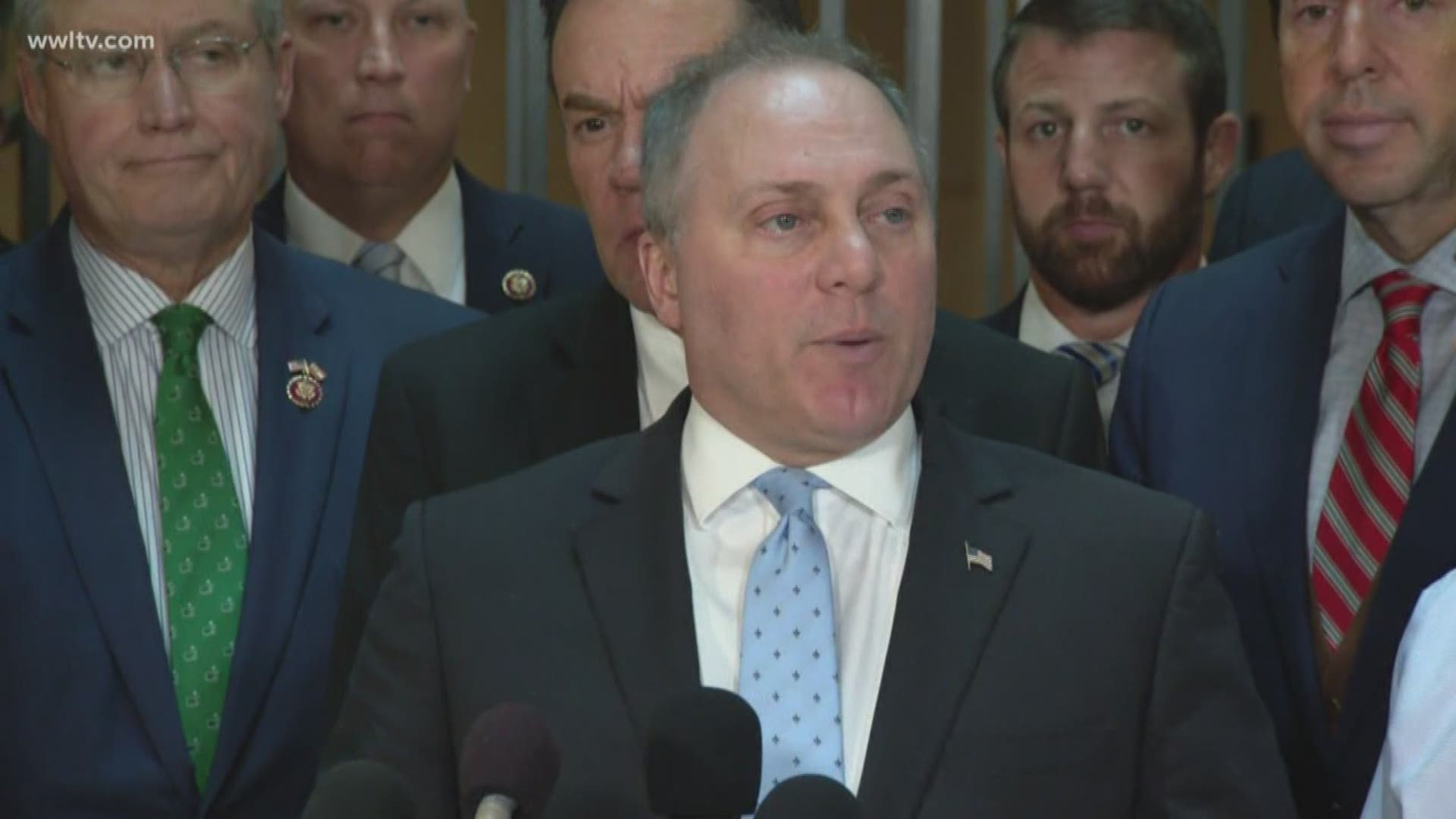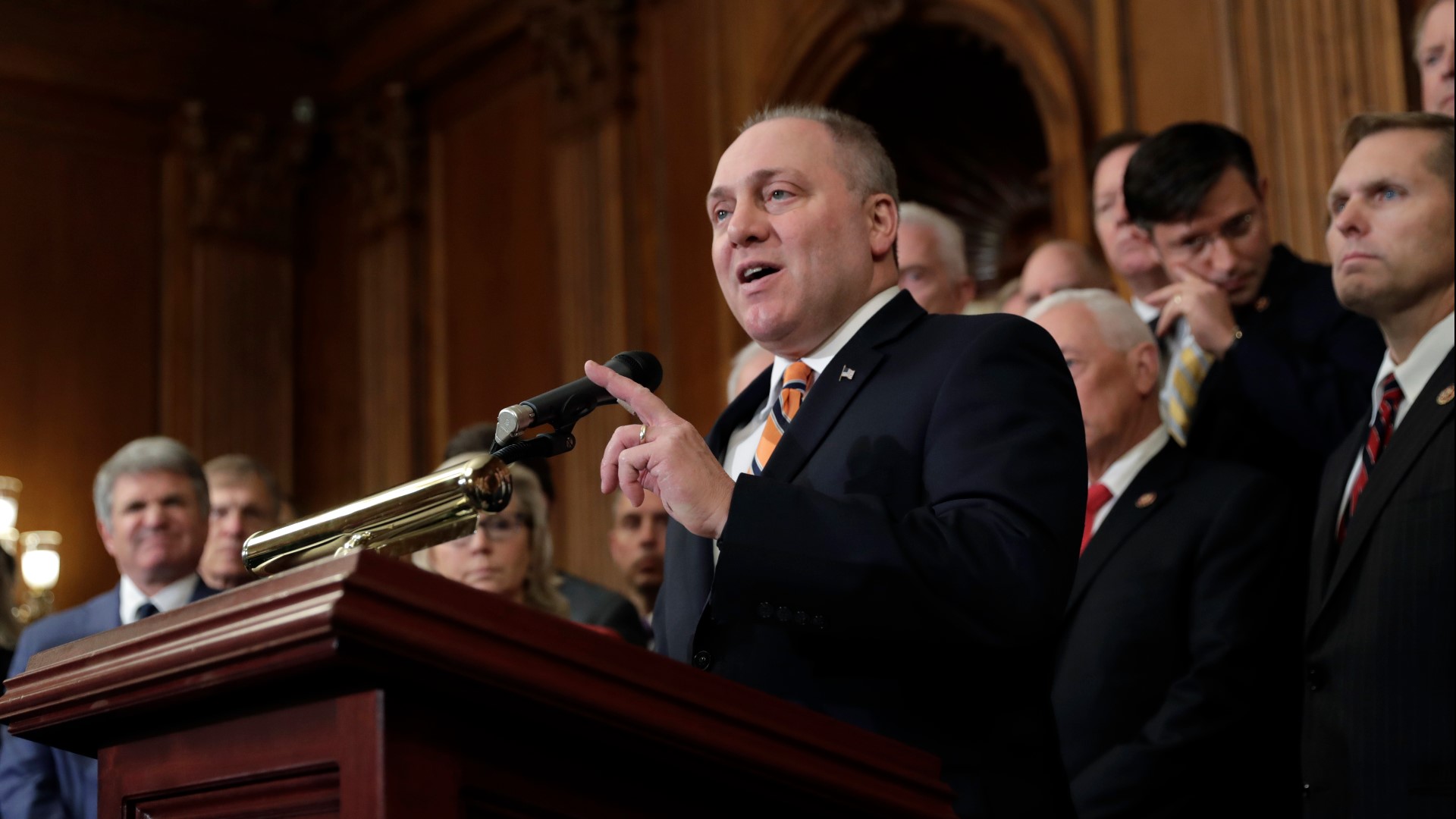WASHINGTON — All six Louisiana congressmen voted along party lines Thursday on a resolution in the House of Representatives that laid down ground rules for the impeachment inquiry into President Donald Trump's dealings with Ukraine.
House Minority Whip Steve Scalise led his four Republican colleagues in opposing the resolution. Reps. Ralph Abraham, Garret Graves, Clay Higgins and Mike Johnson voted no.
Scalise slammed the impeachment inquiry as a sham conducted with a tainted "Soviet-style" process.
"The House deserves better. The people of this country deserve better," Scalise said following the vote.
Rep. Cedric Richmond, the sole Democrat in the state's delegation, was the only yes vote from Louisiana. Richmond represents New Orleans and Baton Rouge.
Richmond did not release a statement following the vote but told Eyewitness News earlier this month that Trump would have to answer for violating the constitution.
"The oath that I took was to always protect the constitution and this guy has run over the constitution with a streetcar, frontward and backward and he's going to have to answer for it," Richmond said.
The 232-196 vote was expected to be highly partisan and largely ended up that way. All House Republicans voted against the resolution and two Democratic defectors joined them. Independent Rep. Justin Amash of Michigan voted yes alongside the Democrats.
What the Vote Means
Thursday's vote was not a formal vote on articles of impeachment against Trump. Instead, the vote outlined the rules for the impeachment inquiry as lawmakers prepare to begin public hearings.
The rules lay out how the House Intelligence Committee — now leading the investigation by deposing diplomats and other officials behind closed doors — would transition to public hearings.
That panel would issue a report and release transcripts of the closed-door interviews it has been conducting.
The Judiciary Committee would then decide whether to recommend that the House impeach Trump. Both Cedric Richmond and Mike Johnson are on the Judiciary Committee.
According to the rules for hearings, Republicans could only issue subpoenas for witnesses to appear if the entire panel approved them — in effect giving Democrats veto power.
Attorneys for Trump could participate in the Judiciary Committee proceedings. But in a bid for leverage, panel Chairman Jerrold Nadler, D-N.Y., would be allowed to deny "specific requests" by Trump representatives if the White House continued refusing to provide documents or witnesses sought by Democratic investigators.
The rules also direct House committees "to continue their ongoing investigations" of Trump.
Closed-door Hearings Over
For weeks, the House has been holding closed-door interviews with witnesses that have drawn the ire of some Republicans. Clay Higgins, who represents Louisiana's Lafayette area, is the only member of the state's delegation who has been taking part in the closed-door hearings.
Higgins is a member of the Oversight committee.
In an email to WWL-TV, he said he understood the frustration of other House Republicans, calling the hearings "unnecessarily secretive" with "zero due process."
At one of the hearings, Scalise led a contingent of Republicans into a secure room, stopping a deposition with Laura Cooper, a senior Defense Department official who oversees Ukraine policy.
"I rise in strong opposition to the way that this impeachment inquiry is being conducted in secret, behind closed doors," Scalise said in a statement. "This is not the way it should be done – maybe in the Soviet Union this is how they conduct hearings. This is not how it should be done in the United States of America."
Republicans have spoken up in recent weeks against what they said were secretive meetings that didn't give Trump a chance to defend himself.
Democrats said the procedures — which give them the ability to curb the president's lawyers from calling witnesses — are similar to rules used during the impeachment proceedings of Presidents Richard Nixon and Bill Clinton. Republicans complained they were skewed against Trump.


